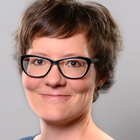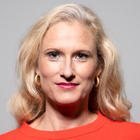The Current Column
Compact with Africa summit
Why Europa and Africa should discuss about sustainable societal models
Hackenesch, Christine / Julia LeiningerThe Current Column (2019)
Bonn: German Development Institute / Deutsches Institut für Entwicklungspolitik (DIE), The Current Column of 18 November 2019
Bonn, 18 November 2019. This Tuesday sees the German Chancellor host twelve African heads of state and government at an Africa summit in Berlin. The meeting forms part of the Compact with Africa (CwA), an initiative launched by the German G20 Presidency in 2017. The CwA seeks to encourage private investment in African partner countries. Both the Compact and the Marshall Plan with Africa, launched by the German Development Ministry in the same year, have raised the political profile of German cooperation with Africa. Nonetheless, if Germany is to enhance the common good orientation and effectiveness of its Africa policy, then it must promote a comprehensive dialogue about sustainable societal models.
Greater competition for cooperation with Africa: Why now?
Germany is not the only country to launch an initiative of this kind. The CwA is just one example of several measures launched in recent years by the EU and some of its member states, China, Russia, the United States, Turkey, Saudi Arabia, the United Arab Emirates and Japan. These nations are interested first and foremost in intensifying their economic relations with Africa. Germany and other EU member states are also keen to play their part in improving the investment climate and the political and legal framework in African countries.
Why is interest growing in cooperation with Africa at this particular point in time? Germany and other European countries see the promotion of economic ties as part of the solution to the rise in the number of African migrants coming to Europe. Put simply, private economic investments should improve the living conditions in African nations and thus reduce migrant flows in the long term. The initiatives are also a response to the growing economic and political competition with China in Africa.
More political dialogue beyond private sector investments
The fresh interest in economic cooperation with Africa comes at a critical point in time. African societies are facing massive upheaval. African and global megatrends such as high population growth, exponential urbanization, digitalisation and the negative consequences of climate change are changing societies on a fundamental level.
Supporting public and private investment in infrastructure and the private sector is thus a key step forwards. Only if they have the necessary resources will societies be able to pursue common good-oriented policies and thus proactively shape the megatrends. However, funding can only be part of the solution to the immense challenges facing African societies. Investments contribute to the common good if they are founded on concepts and visions of sustainable societal models in Africa. The different initiatives should therefore be accompanied by a comprehensive dialogue with African partners on ways of facilitating economic development that is environmentally sustainable as well as socially inclusive. The Agenda 2063 of the African Union (AU) and current debates in the EU on developing a Green Deal should provide important starting points for this dialogue.
European Africa Policy as a forum to discuss about sustainable societal models
With the CwA, Germany has made an important contribution to placing cooperation with Africa higher on the agenda of the G20. Yet, the G20 currently do not provide a forum where G20 members coordinate their Africa policies or where a dialogue about sustainable societal models with African partners could be conducted.
Germany should therefore promote a European Africa policy beyond efforts within the G20. The EU’s member states and institutions have so far pursued their Africa policy activities largely in isolation. In the face of major societal challenges, the presence of China and growing geostrategic competition between external powers on the continent, individual EU states lack sufficient clout in Africa. There is therefore an urgent need for a European policy on Africa that has common objectives and aligned instruments.
Offering a comprehensive dialogue on sustainable societal models could become the key element of a common European Africa policy. EU member states could thereby contribute their various experiences with different social and economic models as a comparative advantage in European cooperation with Africa. At the same time, it is clear that in the era of transformation towards sustainability, all societies are involved in a search process. Europe has no blueprint for what a socially and politically inclusive carbon neutral economy would look like. This is also an opportunity, because European and African societies can and must invest in joint knowledge production. Preparations for the next AU-EU-summit that might take place in winter 2020/2021 would be an important window of opportunity for launching this dialogue.


